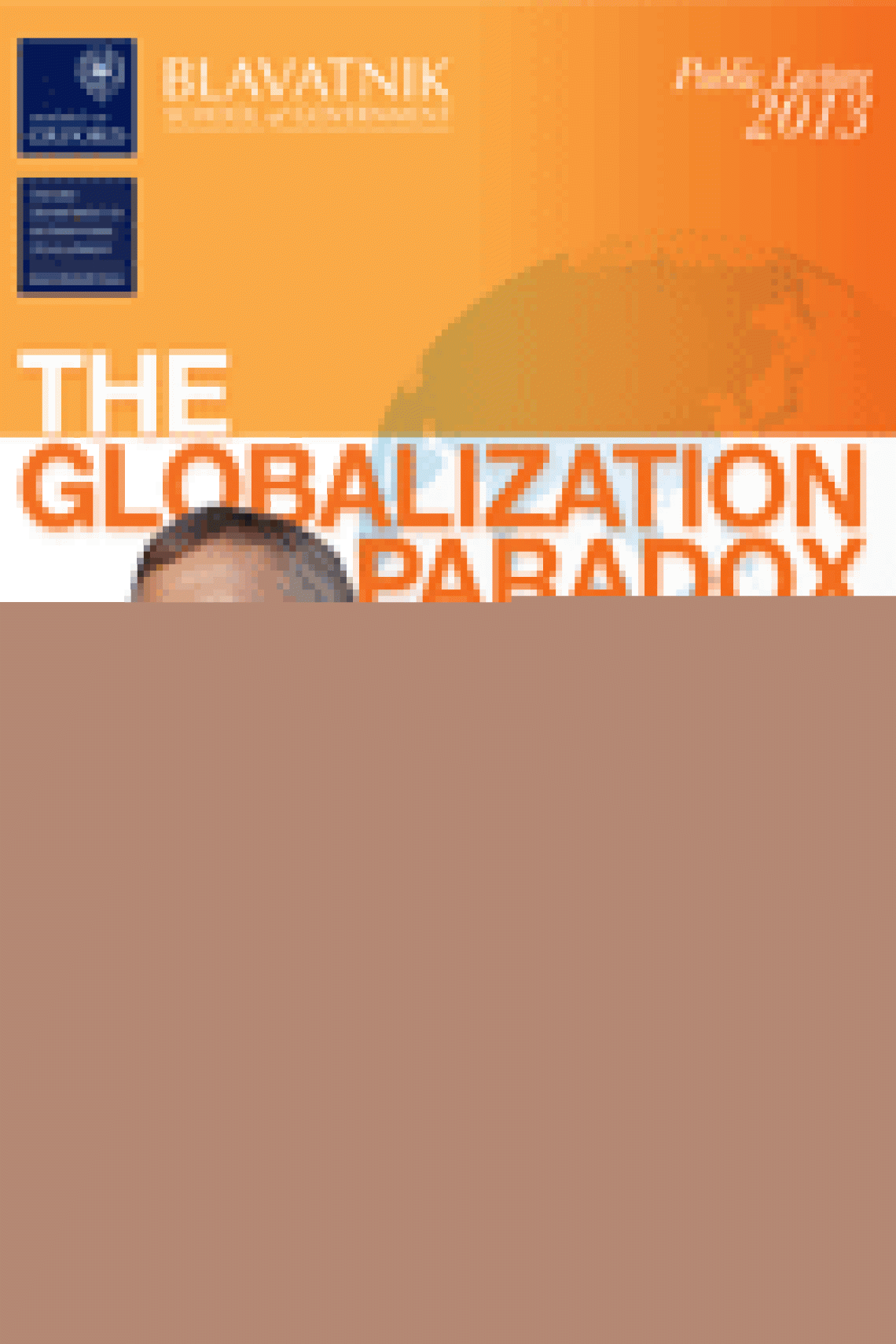ODID/Blavatnik Public Lecture: Dani Rodrik on the Globalization Paradox
Professor Dani Rodrik will deliver a public lecture entitled the Globalzation Paradox on May 2.
Professor Rodrik is the Sanjaya Lall Visiting Professor of Business and Development in association with Oxford University's Green Templeton College and the Social Sciences Division. He is also the Rafik Hariri Professor of Political Economy at Harvard University's Kennedy School of Government.
The lecture, which is being co-hosted by ODID and the Blavatnik School of Government, will take place at 5 pm in the Auditorium, St John's College.
Globalization has played a key part in some of the astounding economic successes of our time – such as China’s economic rise – but it is also implicated in rising inequality in many countries and painful financial crises. In light of its weak institutional foundations, the extent to which globalization can advance remains very much in question. In this lecture, Professor Rodrik will develop and illustrate, using examples from Europe and elsewhere, what he calls the 'political trilemma of the global economy': democracy, national sovereignty, and hyper-globalization are mutually incompatible; we can have at most two of those three.
Professor Rodrik has published numerous articles on globalisation and economics, and in the past was an editor of 'Review of Economics and Statistics'. His most recent book is 'The Globalisation Paradox,' published in 2011. He has been the recipient of presitigious awards for his work, including the Albert O. Hirschman Prize from the Social Science Research Council in 2007, and has given lectures to universities and organisations around the world. He received a Ph.D in Economics and a Master in Public Affairs from Princeton University, and an AB in Government and Economics from Harvard College.
Places at the lecture are limited and those interested should register their attendance by Friday 26 April to events@bsg.ox.ac.uk. All emails will be processed on a first come, first served basis.

